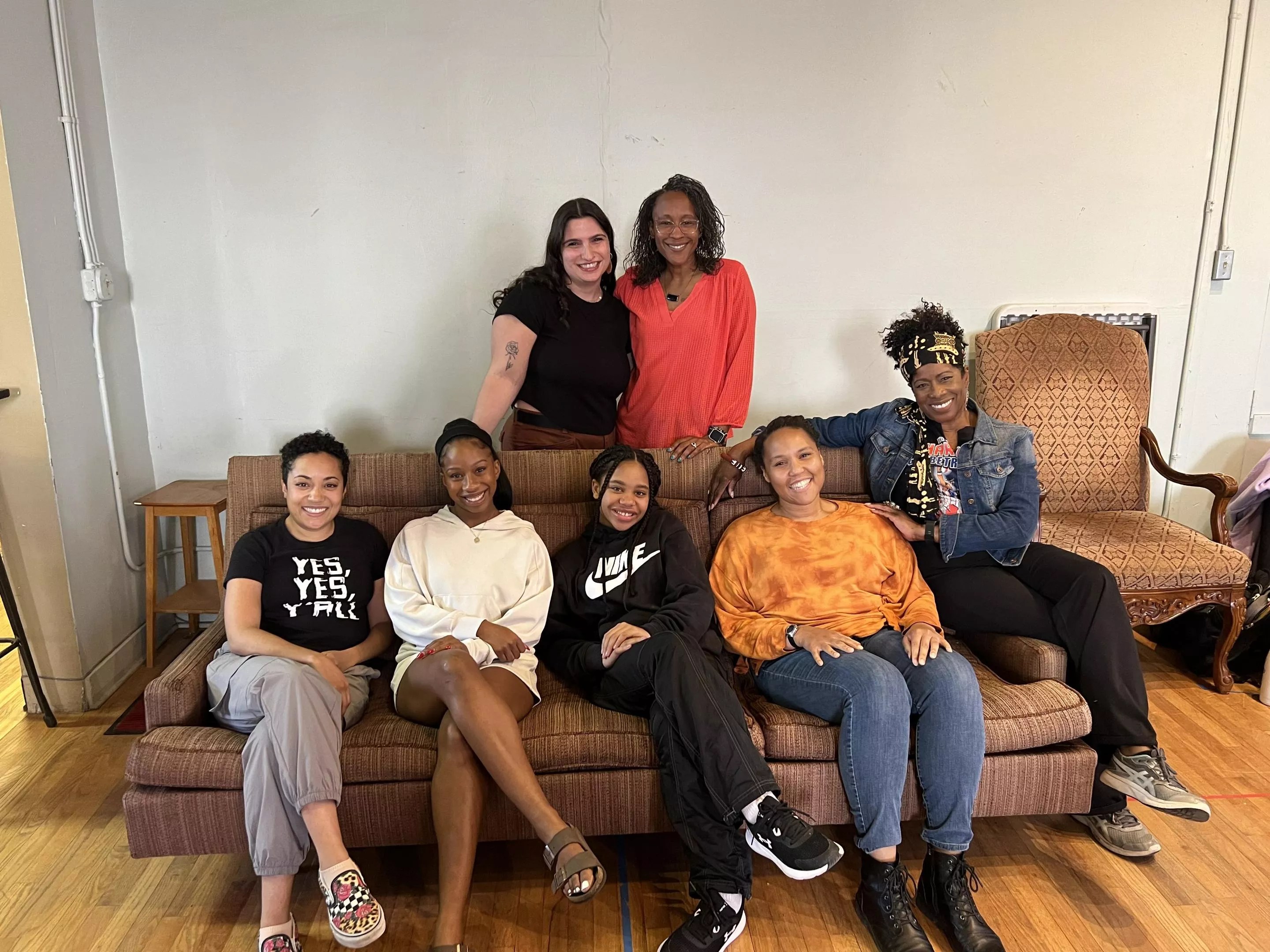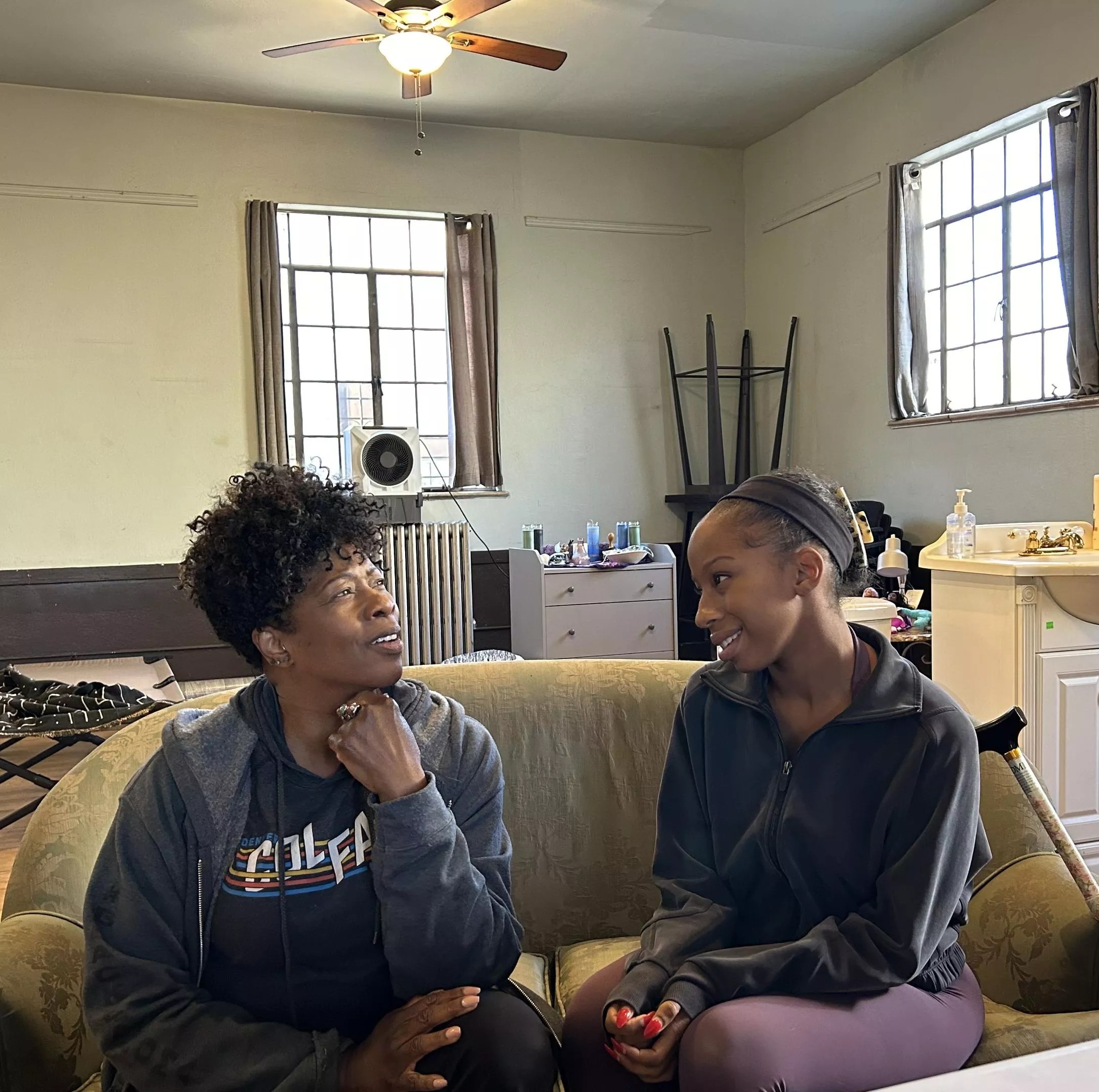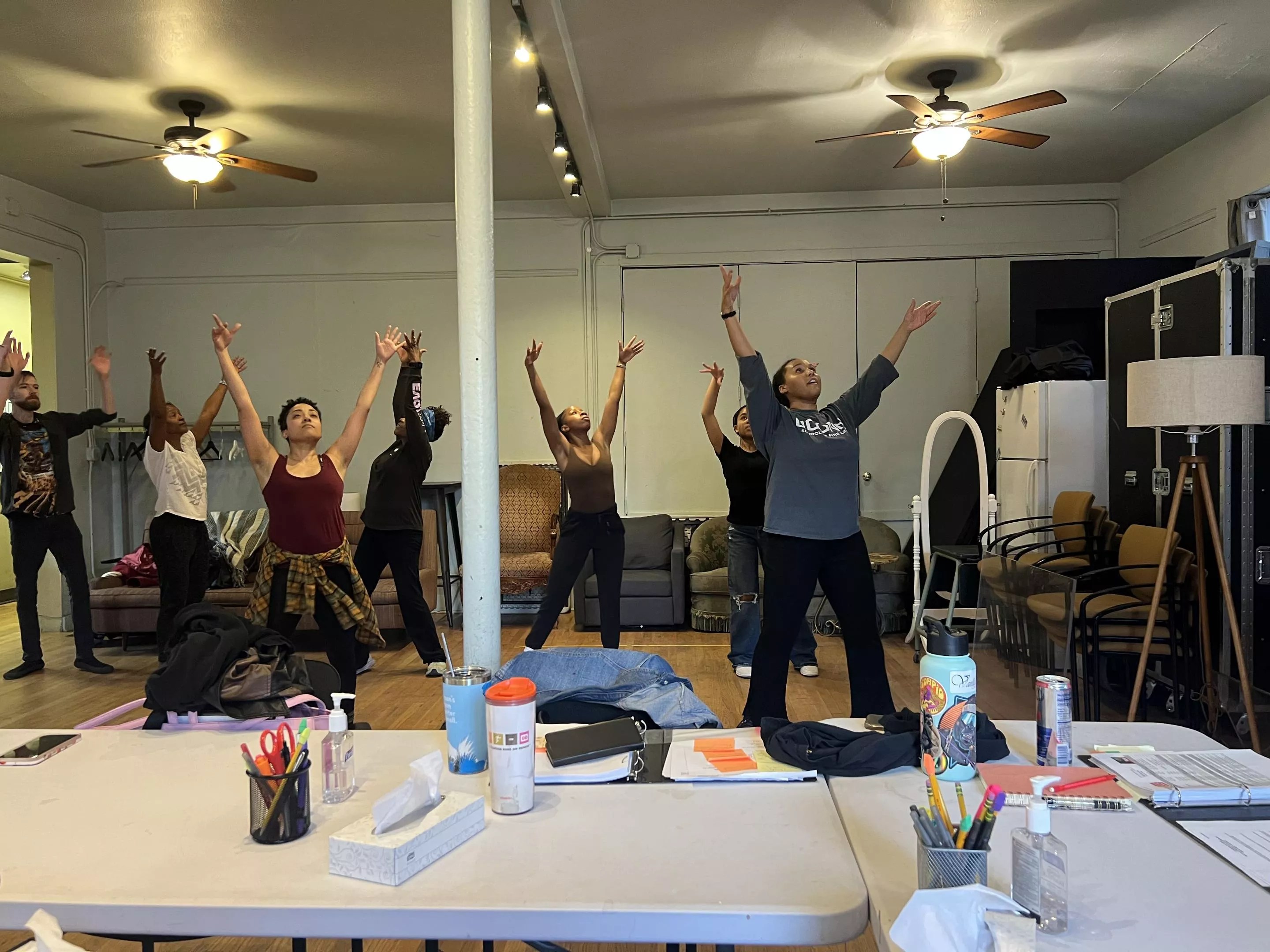
Courtesy of Katelyn Sauer

Audio By Carbonatix
When Curious Theatre Company apprentice Evette Srouji was assigned to work on cullud wattah, she immediately began diving into research to grasp the current status of the water crisis in Flint, Michigan.
“As soon as I found out the play was about Flint, I thought, ‘Wait, where’s that situation at right now?'” Srouji says. “I began researching the crisis and discovered that Flint still lacks clean water. This is an excellent conclusion to our season, because cullud wattah examines the crisis through the eyes of a family, demonstrating how lead in their water is intruding on their lives.”
The crisis began in 2014, when Flint switched its water supply from Detroit’s system to the Flint River to cut costs, which led to water contamination from insufficient water treatment, exposing residents to dangerous levels of lead. The catastrophic mismanagement not only sparked outrage across the nation, but also highlighted systemic failures to provide safe drinking water. An Afro-surrealist drama, cullud wattah delves deep into this issue, focusing on the public health disaster as well as the broader implications of institutional neglect and environmental racism.
Through the experiences of a family of Black women living under one roof, the play paints a vivid portrait of the day-to-day struggle to find dignity and normalcy in a situation that remains unresolved. Directed by Curious Theatre Company’s artistic director, Jada Suzanne Dixon, cullud wattah stars Sheryl McCallum, Kristina Fountaine, Alex Campbell, Daja McLeod and Sade Houston.

“It is not just about the water crisis; it’s about how this affects individuals, families, their city and the state,” says actor Sheryl McCallum.
Courtesy of Evette Srouji
The intergenerational cast of Black women brings Erika Dickerson-Despenza’s award-winning play to life through song, ritual and raw emotion in its regional premiere. McCallum, who stars as the matriarch, Big Ma, was drawn to the play’s exploration of intergenerational family dynamics set against the backdrop of a community crisis.
“I love intergenerational families, and this show is about a family of Black women,” she says. “They’re all living in the same house, which can be problematic at times, and then you add on top of this the whole water crisis that was going on in Flint and how that has affected their families. It is not just about the water crisis; it’s about how this affects individuals, families, their city and the state.”
McCallum emphasizes the significance of staging such a socially charged piece at Curious Theatre, which is known for its commitment to provocative works centered on social justice. “I think the title could be misleading, but once people know that cullud wattah is about environmental justice, I think this will appeal to, pun intended, curious people,” McCallum says. “The water crisis is happening across the country, not just in Flint, so we need to keep an eye on it. It is mind-boggling that this occurred in a city as diverse as Flint and that they attempted to cover it up. Environmental racism is a man-made problem, exacerbated by lies and corporate greed. There are many layers to this play; it has joy, humor, consequence and sadness, but it is also very real and fun.”
Fountaine, who plays Ainee, the eldest daughter, also praises Dickerson-Despenza’s writing, noting that she was drawn to the script’s poetry and the urgency of the issues. Like her character, Fountaine is driven by a strong sense of justice and a willingness to advocate for her community. “With her past of being an addict, pregnant and only being about a year clean, Ainee has so much to prove – not only to herself, but to her family,” Fountaine says. “I love that fight. There is something inside me that forces me to speak up when I see injustice, and Ainee is a fighter, so I instantly connected to her voice.”
That fight is depicted in the dialogues and relationships between the characters, and the water crisis serves as both a literal and metaphorical backdrop to their lives. Fountaine says that understanding her character’s relationship with water helped her understand Ainee’s character arc. “One of the things we have discussed in the early stages of the process is that water itself can be so many things,” Fountaine says. “It could be fast and rushing, calm and still or wavy and dreamy. Ainee is dealing with a tumultuous wave inside her, and she must decide whether or not she wants to navigate those waters, even if it means having choppy and intense conversations with her family.”

cullud wattah is enhanced by its use of music.
Courtesy of Katelyn Sauer
The directorial vision for cullud wattah stresses the presence of water at all times. “We are working out how to make sure water completely encapsulates this project and is always constant,” says assistant director Srouji. “We want the audience to feel like water is looming over them the whole time.”
As an apprentice director who recently graduated from the University of Northern Colorado, Srouji appreciates the opportunity to work under Dixon’s mentorship. The two conducted dramaturgical research by watching numerous documentaries, exchanging script ideas and reading What the Eyes Do Not See, by Dr. Mona Hanna-Attisha, the local Flint pediatrician who uncovered the crisis.
“Jada is a genius, and the way she sees the world and conveys it on stage in her shows is completely out of the box,” Srouji says. “The first thing we both agreed on was that this is a family that loves and fights hard. Many scenes in the play leave words unspoken as different generations of women try to connect while dealing with the water crisis. This is also the first time that a cast of five Black women has appeared on the Curious stage together, and the show is directed by two women of color, which is fantastic and extremely empowering.”
The narrative of cullud wattah is further enriched by the integration of music, which plays a significant role in conveying the emotional depth and cultural backdrop of the story. The songs – which include chants, lyrics from “Lead in de Wattah: A Revisited Negro Spiritual fo(r) Flint,” by avery r. young, and ensemble-devised moments – create a soundscape integral to conveying the nuance of the water crisis.
“Music is a huge factor in how I get into my character and find her internal rhythm,” says Fountaine. “It unlocks a lot for me physically. I’m excited to dive into something that scared me: singing. I can hold a tune, but I’m not a musical theater performer. Without giving too much away, we are working to music and our voices in a way that reflects water.”
Cullud wattah challenges viewers to consider the impact of their actions and the importance of vigilance in safeguarding community welfare. Srouji hopes that the play will inspire people to ask what action they can take to assist people in Flint and ensure that this doesn’t happen elsewhere.
“Although we are a little bit removed from Flint, cullud wattah is still so important, because it could happen to us,” she says. “I have family in Michigan, and I remember hearing how they were worried about what was going to happen to their water. This is a problem we all know about from the news, but see that and then move on. But if we all could just put our energy into action, maybe it could get fixed.
“I think it all starts with sitting down in a theater and watching something that’s real but still part fiction,” Srouji concludes. “It brings the problem back into people’s space without pointing fingers. I hope people walk out of it feeling like they want to do something, or at least remember that this is happening again. Cullud wattah is perfect for Colorado. I’ve lived here all my life, and it’s pretty proactive. I feel like if this were to happen here, people would be outraged and want it to be fixed, so I hope putting this back into people’s brains will help make a positive change.”
cullud wattah previews Thursday, May 16, and Friday, May 17; regular run Saturday, May 18, through June 15, Curious Theatre Company, 1080 Acoma Street, Denver. Get tickets at curioustheatre.org.